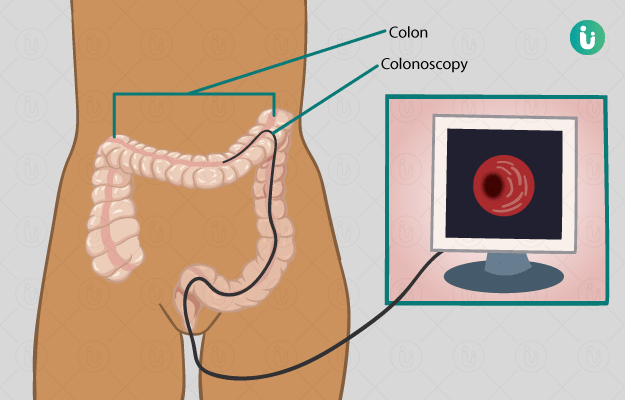What is Colonoscopy?
Colonoscopy is an outpatient procedure that is used to examine parts of the digestive system, especially the large bowel (colon and rectum) and distal parts of the small bowel from within. It is performed by experienced doctors who are particularly trained for this procedure. The individual needs to prepare himself/herself a day or two before the procedure to cleanse the digestive system for allowing a clear visualisation.
This procedure is done with the help of a colonoscope, a long, flexible and manoeuvrable scope with a camera and light at one end and helps identify cancerous and precancerous lesions. The doctor can guide the scope to view and remove abnormal tissues for diagnostic and therapeutic purposes.






























